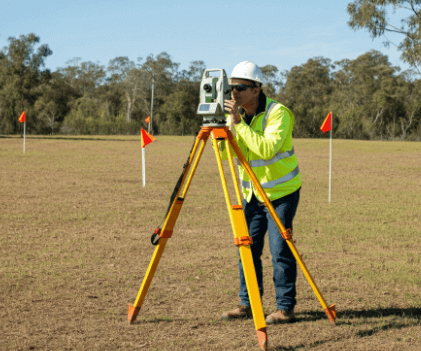Subdividing land can be lucrative, but it’s not always quick or simple. If you’re wondering, “How long does subdividing land take in Webster, Florida?” the answer often depends on local regulations and the project’s complexity. The process usually takes 6-12 months, but complex subdivisions can take up to 18 months. Key steps include hiring a land surveyor, meeting zoning requirements, and securing approvals. Renowned real estate investors Steve Daria and Joleigh, known for buying land for cash, emphasize that preparation makes all the difference in avoiding delays and unexpected costs. With their wealth of experience in the Florida market, they can guide you through the process and even offer alternative selling options to save you time and effort. Considering the potential challenges, having experts on your side can simplify your path to unlocking the value of your property. Contact Steve and Joleigh today to book a free discussion and find out how their expertise can help. If you’re asking, “How long does subdividing land take in Webster, Florida?” they’re ready to provide tailored advice to get you started!
What does subdividing land mean in Webster, Florida?
Subdividing land in Webster, Florida, means breaking a single parcel of land into smaller, legally recognized lots.
This process allows landowners to create separate parcels that can be sold, developed, or used independently.
For example, a large piece of land could be split into smaller lots for housing or commercial use.

Subdivision often involves steps such as hiring a land surveyor, reviewing local zoning laws, and submitting plans to local authorities for approval.
These new parcels must meet specific requirements, including minimum lot sizes and access to utilities like water and roads.
Environmental factors, such as protecting wetlands or green spaces, can also impact the subdivision process.
If you’re wondering, “How long does subdividing land take in Webster, Florida?” the timeframe can range from 6 to 12 months or longer, depending on the land’s complexity and the intricacies of the approval process.
Overall, by subdividing land, property owners can unlock the potential value of their property while adhering to local rules and regulations.
Get Started: Get Your Cash Offer Below…
We are direct land buyers. There are no commissions or fees and no obligation whatsoever. Start below by sharing where your property is and where we can send your offer…
Why would someone want to subdivide land in Webster, Florida?
Subdividing land in Webster, Florida, can be an excellent way for property owners to maximize the value of their land.
By splitting a single property into smaller, legally defined lots, landowners can sell each piece separately, often generating more income than selling the property as a whole.
This is especially appealing in growing areas where demand for housing or commercial spaces is rising.
Subdivision also allows developers to build homes, businesses, or community amenities on smaller, manageable plots.
Additionally, it allows families to divide land among heirs or create a personal building lot while selling the rest.
Factors such as zoning laws, the size of land, and access to utilities play a role in making subdivision viable.
For those wondering, “How long does subdividing land take in Webster, Florida?” The process may take several months to over a year, depending on local regulations and property specifics.
Ultimately, subdividing allows landowners to unlock the potential of their property and cater to their financial or personal needs.
How long does subdividing land take in Webster, Florida?
- Research and Planning (1-3 months): The process starts with understanding local zoning laws, land use regulations, and environmental restrictions. This step is important to ensure your land subdivision meets all legal requirements.
- Surveying the Land (2-4 weeks): A surveyor maps out the property, marking boundaries, existing structures, and natural features. This ensures the land can be divided correctly and follows local rules.
- Submission of Plans and Application Review (2-6 months): Once the survey is complete, the plans are submitted to the local planning department for approval. The review process can vary in time depending on the complexity of your project and whether revisions are needed.
- Public Hearings and Approvals (1-3 months): Subdivision applications may require public hearings, during which community members can share their thoughts. This step is part of the approval process and helps finalize decisions.
- Finalizing the Subdivision (1-2 months): After approval, the subdivision is finalized by recording the new plat with the local county. This step also involves final inspections to make sure everything is complete.

What is the average cost of subdividing land in this area?
The average cost of subdividing land in Webster, Florida, can vary depending on several factors.
These include the land size, the number of lots being created, and the local regulations involved.
Typically, landowners will need to cover expenses such as hiring a professional land surveyor, paying application and review fees, and meeting any legal or environmental requirements.
Bigger or more complex properties might need extra services, such as legal help or engineering studies, which can increase the cost.
Landowners should also consider fees for recording the new plat with the county and possible adjustments needed during final inspections.
Altogether, these costs can add up, making it important to clearly understand the process and your budget.
For those wondering, “How long does subdividing land take in Webster, Florida?” the timeframe generally ranges from 6 to 12 months or more, depending on the specific circumstances.
While the process involves careful planning and expenses, it can ultimately unlock the financial potential of your property.
What permits are required to subdivide land in Webster, Florida?
- Zoning Approval: Zoning approval is essential to ensure the land can legally be divided into smaller lots. The zoning department checks that your plans meet local land use regulations and zoning classifications.
- Subdivision Application Permit: This is the main permit for the subdivision process, submitted to the local planning or development office. It includes details about your project, such as lot sizes, intended use, and any infrastructure changes.
- Environmental Permit: If your land includes wetlands, protected areas, or other environmentally sensitive features, you may need an environmental permit. This permit ensures the subdivision does not negatively affect surrounding natural resources.
- Utility Connection Permits: When subdividing land, you’ll need permits to connect utilities like water, sewer, and electricity to each new lot. These permits help ensure proper installation and compliance with safety standards.
- Building Permit (for Future Development): While subdividing primarily addresses land division, you may also need building permits if you plan to construct homes or other structures. These are required to follow local building codes for safety and efficiency.
- Road Access Permit: If new roads or driveways are needed to access the subdivided lots, you may need a road access permit. This ensures that connections to public roads are safe and meet local transportation standards.
- Stormwater Management Permit: A stormwater management permit may be necessary if your project changes how water flows on the property. This permit helps prevent issues like flooding or erosion by ensuring proper drainage systems are in place.
What is the first step in starting the land subdivision process?
The first step in starting the land subdivision process is researching and understanding local zoning laws and regulations.
It’s important to confirm if your property is eligible to be divided and how it aligns with the rules in Webster, Florida.
This involves checking zoning classifications, land use policies, and any applicable neighborhood restrictions.
Hiring a professional land surveyor early on is also a key part of this step.
A surveyor will create an accurate map of your land, marking boundaries and assessing features like natural obstacles or existing structures.
For those wondering, “How long does subdividing land take in Webster, Florida?” This initial stage alone can take a few weeks to a few months, depending on the complexity of the property.
With the right planning and guidance, you can get your project on track and possibly speed up the process.
To smooth the way, consider consulting Steve Daria and Joleigh, experienced real estate investors specializing in land purchases for cash and having extensive knowledge of subdivision projects.
Their expertise ensures you gain a clear understanding of the process while also helping you explore potential opportunities, such as selling your land, if it aligns with your goals.
Take the first step toward unlocking your property’s full potential—reach out today!
Takeaway
- Subdividing land in Webster, Florida, typically takes about 6 to 12 months. However, the timeline may vary based on property size, local regulations, and the overall complexity of the project.
- Researching zoning laws and local regulations is a crucial first step. This ensures that your property meets all legal requirements before starting the subdivision process.
- Professional assistance, such as hiring a land surveyor, is essential for accurate property mapping and boundary identification. Their expertise can also help avoid mistakes that could delay the process.
- If applicable, multiple permits are required, including zoning approval, subdivision applications, and environmental permits. Each permit ensures that your project follows local rules and protects infrastructure and resources.
- Partnering with experienced professionals and strategic planning can streamline the process and minimize stress. Engaging knowledgeable real estate investors or consultants can provide valuable guidance and insights.
**NOTICE: Please note that the content presented in this post is intended solely for informational and educational purposes. It should not be construed as legal or financial advice or relied upon as a replacement for consultation with a qualified attorney or CPA. For specific guidance on legal or financial matters, readers are encouraged to seek professional assistance from an attorney, CPA, or other appropriate professional regarding the subject matter.
